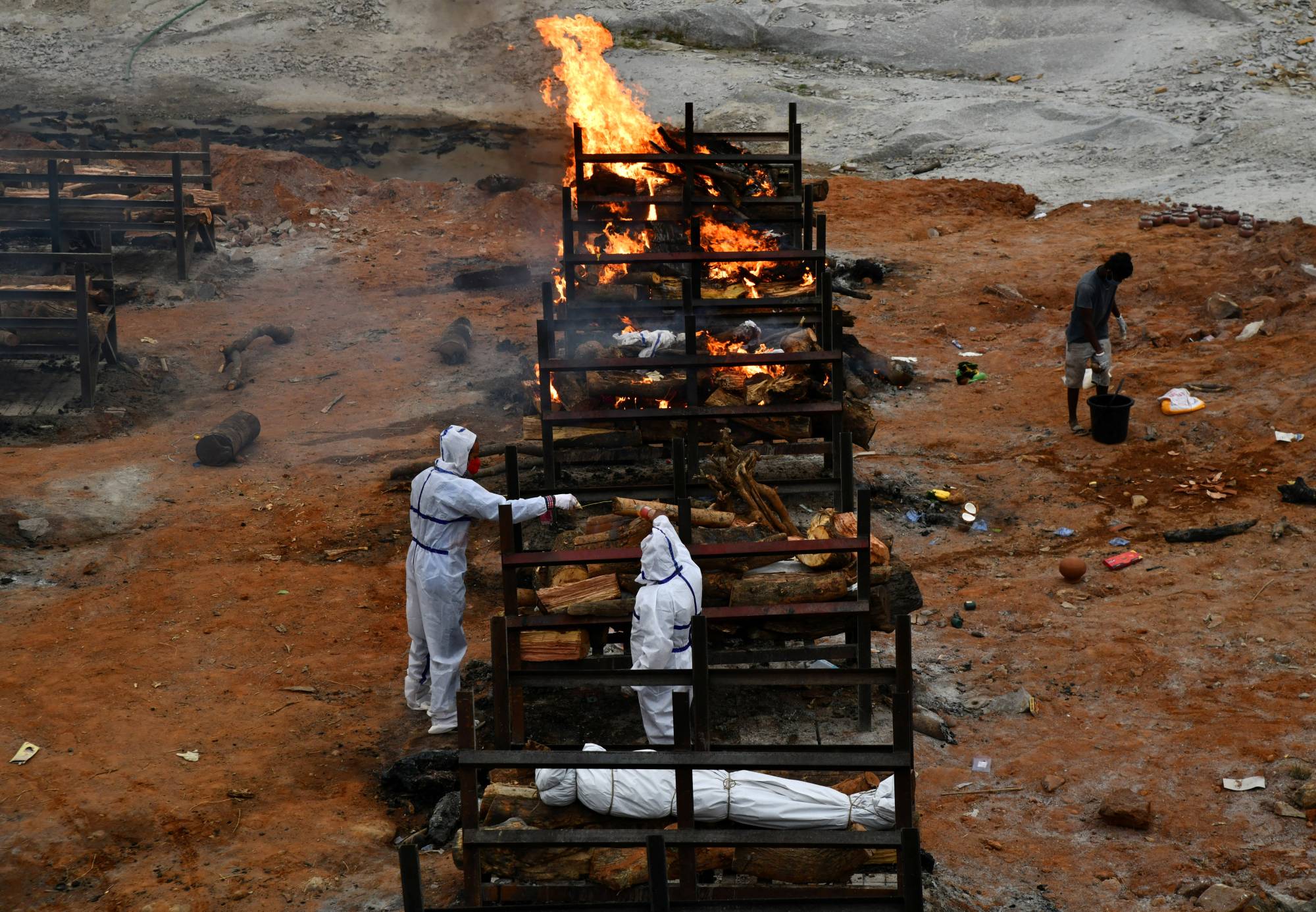Why Is China Not Being Able To Arrest Its Covid-19 Surge?
Although the Chinese Authorities have not released numbers to confirm the total number of its population infected with Covid-19, a top government scientist has revealed that almost 80% of the Chinese population has been infected with the virus.

However, at the same time, the Chinese authorities have been guarded in giving out any data in this regard.
China took strict measures, including a three-year-old Zero Covid policy-induced lockdowns in affected areas, so much so that people have been seen opposing the lockdowns and authoritarian policies. Yet, China has not been able to control the rapid surge in infections; Why?
However, there are two things that the Chinese government did after it relaxed the three-year-old Covid policy
1. It stopped releasing data on the number of Covid cases and deaths
2. Changed the criteria for Covid deaths.
As of 12 January, nearly 60,000 people have died in hospitals across China, and these were people that died due to the virus; however, these figures vastly undermine the exact numbers.

According to China
China said that between 8 December and 12 January, the number of Covid-related deaths across the country was 59,938.
These figures were published on 15 January as the first death toll update since it lifted the lockdown restrictions last year.
And what the data shows is that it is a massive surge from the previous month’s recorded deaths of 13; this is because China has not included deaths from underlying conditions well, as Covid contributed to respiratory failure deaths.
Also, China has only been recording data from hospitals and fever clinics and from those with recognized symptoms; at the same time, it has not been recording data on Asymptomatic cases and positive results from home testing kits.
Thus there is a vast gap between the official figures and the ground reality.
The fact is that because the Chinese government is so closely guarding the official numbers and what is actually transpiring within the country regarding Covid -19 infections, it is becoming increasingly difficult to get the exact data.
However, there is some news that has come in from a leading government scientist who claims that almost 80% of the Chinese population is infected and battling Covid -19 infections.

Health And Cremetorioum services under pressure
The claim reflects the pictures coming in from China which show overcrowded hospitals and medical centres.
The last couple of months has been particularly tough and challenging for China’s healthcare sector, which is reeling from the pressure of handling a sizeable infected population.
And with the zero Covid policy being lifted, things are getting worse.
A study by Peking University gauged that as of 11 January, approximately 64% of the population was reported to be infected with the virus.
Reports in late December indicated hospitals were under growing strain from the number of cases, with long queues for clinics and patients on hospital beds and in the middle of busy waiting rooms.
Videos emerged on social media throughout December, seeming to show crowded hospitals and funeral home queues.
Beijing has also reported long queues outside health clinics and high demand for fever remedies at pharmacies.
Temporary health centres and intensive care facilities across the country have been set up.

What is expected
22 January marks the beginning of the lunar new year. Hence, it is likely that after three years of restrictions, hundreds and millions of Chinese people have been waiting for this redying for celebrations with family and friends.
Hundreds have already started to travel within China while thousands arrive from international destinations, and this mass movement is worrying when the majority of the population is already infected.
How has China’s Covid policy changed?
There was a sudden lifting of many of China’s Covid restrictions following protests against strict lockdowns across the country in November.
Before that, China had one of the most onerous anti-Covid regimes in the world – known as its zero-Covid policy.
The measures included strict lockdowns even if only a handful of Covid cases had been found, mass testing in places where cases were reported, and people with Covid having to isolate at home or under quarantine at government facilities.
Lockdowns have been scrapped, and quarantine rules have been abolished.
A negative Covid test is no longer required to enter public transport, restaurants, gyms and other public buildings (with the exception of orphanages and care homes).
On 8 January, China wholly opened its borders with no travel restrictions or quarantine measures for arrivals.
However, several countries, including the US and the UK, have imposed Covid testing on visitors from China due to its Covid surge in a move strongly criticized by China.

China’s vaccination policy
Overall, China says more than 90% of the population has been fully vaccinated.
However, around the time its zero-Covid policy was lifted, less than half of people aged 80 and over had received three doses of the vaccine.
The authorities now voice they require local health services to “strengthen immunization of the whole population, particularly the elderly”.
There are doubts over whether the primary vaccines used in China – Sinovac and Sinopharm – are effective against Omicron, the most widespread strain.
China’s Refusal to use Western vaccines widely.
While the government has given no official explanation. However, national pride may be a factor, according to Dr Yu Jie, Senior Research Fellow on China at the international affairs think tank Chatham House:
“I think it’s Xi Jinping really thinking of things in terms of economic self-reliance – that need to have China produce and use its own vaccine, rather than import it from somewhere.”




